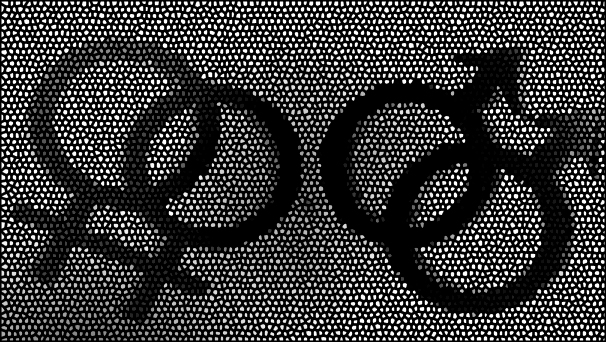
A NEW study of gay men in the United States has found what Lady Gaga knew to be true all along: “Baby, I was born this way.” Well, sort of. They found that genes on two chromosomes affect a man’s sexual preference. Although, apparently, they were “neither sufficient nor necessary, to make any of the men gay”.
I still had to put in some work of my own. The genes in question are “chromosome 8” and “Xq28”, which makes complete sense since they both sound like names of Soho gay bars. I’m fairly sure I have actually been to Xq28 once.
The mere existence of such genetic studies reveals a particular obsession, very specifically, with gay men. Nobody, so far as I’m aware, is investigating why some straight folks prefer the “reverse cowgirl” to the “missionary position”. Nor why my sister’s sexual past seems to be littered almost exclusively with bald men.
Lesbianism, bisexuality, transsexuality and queer identities, sexual experimentation and asexuality all fade into the background, while everything is reduced to a single issue: why do some men choose to have sex with other men? When Putin says he doesn’t mind gays, he is talking about gay men. Whenever countries criminalise homosexuality, the crime in question, more often than not, is buggery.
Unfortunately, studies like this one very much feed the same beast. The question of nature versus nurture or choice is always manipulated in terms of ascribing more or less culpability to our sexual preference; finding the bugger and the buggered more or less responsible.
Some media reaction confirms precisely this. The Daily Mail greeted results of the study with the headline, “Abortion hope after ‘gay genes’ findings”. In that respect, the “I can’t help myself” narratives become as unhelpful as gay cure narratives; indeed, they become the basis of gay cure “hopes”, only this time based on eugenics rather than pseudo-psychiatry.
This is because such research necessarily comes at issues of sexuality from an angle which looks at any deviation from the narrowly defined and subjective ideal, as fixable or non-fixable abnormality. They are also, evidently, completely useless. Unless one considers homosexuality as a problematic occurrence to be studied — and eventually fixed – the continual focus on what makes some men fancy other men is nothing but morbid fascination. And it is a fascination with a dangerous twist.
Let us say we continue down this path and discover definitive genetic markers which can identify someone as gay. How long would it be before a black market was created for foetus selection by intolerant, but wealthy, couples? How far away would we be from countries, in which homosexuality is a punishable crime, admitting such evidence in court? Indeed, I cannot think of a single positive application for such research, other than the generic claim that it will help us understand better. But in order to understand better, one has to have a mind open to fact.
- Chamisa under fire over US$120K donation
- Mavhunga puts DeMbare into Chibuku quarterfinals
- Pension funds bet on Cabora Bassa oilfields
- Councils defy govt fire tender directive
Keep Reading
The vast majority of the people who consider homosexuality a plague or responsible for floods, are hardly friends of science.
Isn’t it time we all grew up and stopped obsessing about the sexual behaviour of consenting adults? I lost my father to pancreatic cancer. My mother is fighting a daily battle with Alzheimer’s. In this context, that a single cent of medical research should be devoted to explaining whom I choose to share my bed with, is utterly obscene. — Mail&Guardian










